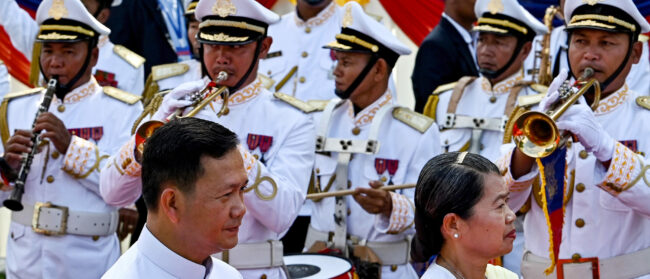Two years ago, Malaysia’s opposition leader was in jail, the nation’s independent media was being censored or shut down and colonial-era laws were being used to jail activists. The idea of a democratic transition wasn’t even a pipe dream – yet it happened due to a perfect storm of events on 9 May when the opposition Pakatan Harapan (PH) coalition, led by former Prime Minister Mahathir Mohamad, beat Barisan Nasional (BN), which had ruled uninterrupted for 61 years.
“The people of Malaysia felt like it was an independence day. We regained our freedom,” Bala Chelliah, president of the NGO Global Bersih, told Southeast Asia Globe.
This does not mean everything has been solved in Malaysia. The first question that many had after the result was simple. Could Mahathir, who had himself led BN as prime minister for 22 years, from 1981 to 2003, really be a reformist? That period saw numerous assaults on civil liberties, including the use of legal tools to suppress the opposition.
So far, the answer is a surprising yes. The incoming cabinet is full of respected experts rather than political cronies. Moves are being made to repeal a controversial anti-terrorism law. Controversial trade deals with China were suspended and tabled for renegotiation. High-dollar infrastructure projects, including a high-speed rail link with Singapore, have been axed. And Mahathir is not acting like the Mahathir of old, but taking his caretaker role seriously.
Some things, though, are taking longer than many had hoped. One of the key demands of Malaysian civil society has been the removal of laws that restrict freedom of expression, some of which predate the country’s independence from the United Kingdom. They include the 1948 Sedition Act, National Security Council Act, University and Colleges Act and, in what was one of ousted Prime Minister Najib Razak’s last attempts to entrench power, the Anti-Fake News Act, passed in April.
PH ran on a platform calling for overturning all of these laws, but so far they are still under review. But in one positive development, in late July, a Malaysian court dropped nine charges of sedition against cartoonist Zulkiflee Anwar Ulhaque, known for his satirical drawings of Najib. Karin Deutsch Karlekar of Pen America hopes that this is the first step towards removing these laws.
“It remains to be seen whether it is a one-off event or an ongoing commitment of a government newly dedicated to the free press,” Karlekar said in a press statement. “The Sedition Act and other laws used to suppress free expression are still on the books, so other Malaysian artists and thinkers are still vulnerable.”
The people of Malaysia felt like it was an independence day. We regained our freedom
Bala Chelliah
One reason legal reform has been ignored could be Mahathir’s focus on holding his predecessor responsible for his role in the 1MDB scandal, in which $700 million was allegedly funnelled from a government-run development fund into Najib’s bank account, and billions more went missing. Najib was restricted from leaving Malaysia days after the election, and an investigation was quickly launched. His homes were raided, and in one apartment, investigators found $28.6 million in cash. Less than two months after the election, Najib was formally charged and will face trial soon.
“Conducting a serious investigation into the 1MDB scandal, along with justice departments in other states, is important to show a signal that the era of impunity in Malaysia is ending,” said Josh Kurlantzick, a Southeast Asia expert with the Council on Foreign Relations, a US think tank.
This is especially remarkable because in Southeast Asia, corrupt former officials often get away. Neighbouring Indonesia never tried former President Suharto despite evidence that he had stolen an astounding $35 billion – an amount that makes Najib’s crimes look like peanuts. He was even named the world’s most corrupt leader in modern history by the NGO Transparency International. Yet, during Indonesia reform years, around the turn of the millennium, he was never charged. That has led to the sad irony of his son, Tommy Suharto, wanting to run for president on an anti-corruption platform.
This begs bigger questions. Will what is happening in Malaysia influence the region? Southeast Asia has seen widespread democratic backsliding in the past several years, with press freedom also under increasing threat. Malaysia is swimming against this tide.

But until recently, Malaysia resembled other countries in the region: Cambodia, which saw its opposition and independent media squashed before the most recent election; Vietnam, where an entrenched party is limiting freedom of press and assembly; and Singapore, where another longtime ruling party continues to manipulate elections and suppress dissent.
It could take a while to change Malaysia after 61 years of BN rule. A turning of the tide may not happen in the next year or so during Mahathir’s caretaker role, leaving the question of what exactly a post-Mahathir coalition will look like. Pakatan Harapan is an unwieldy coalition, made up of the centre-left Democratic Action Party, the Islamist-oriented Amanah and two other smaller parties. They united in opposition to BN and remain united under Mahathir, but will they stick together after he departs?
That is why, for Malaysians, the transition from Mahathir to, as many expect, former PH leader Anwar Ibrahim, will be worth watching, but even more important could be who follows Anwar. After all, both Mahathir and Anwar are former BN leaders themselves. Malaysia might have an opposition government, but it has not yet had a leader who wasn’t connected to the BN machine.
“The people who follow after Mahathir, they will have political considerations,” Chew Chuan Yang, documentation and monitoring coordinator at the Malaysian human rights NGO Suara Rakyat Malaysia, told Southeast Asia Globe. “This system that the former regime ran has always benefitted those in power. Is that really going to change? I may start having doubts about that.”


